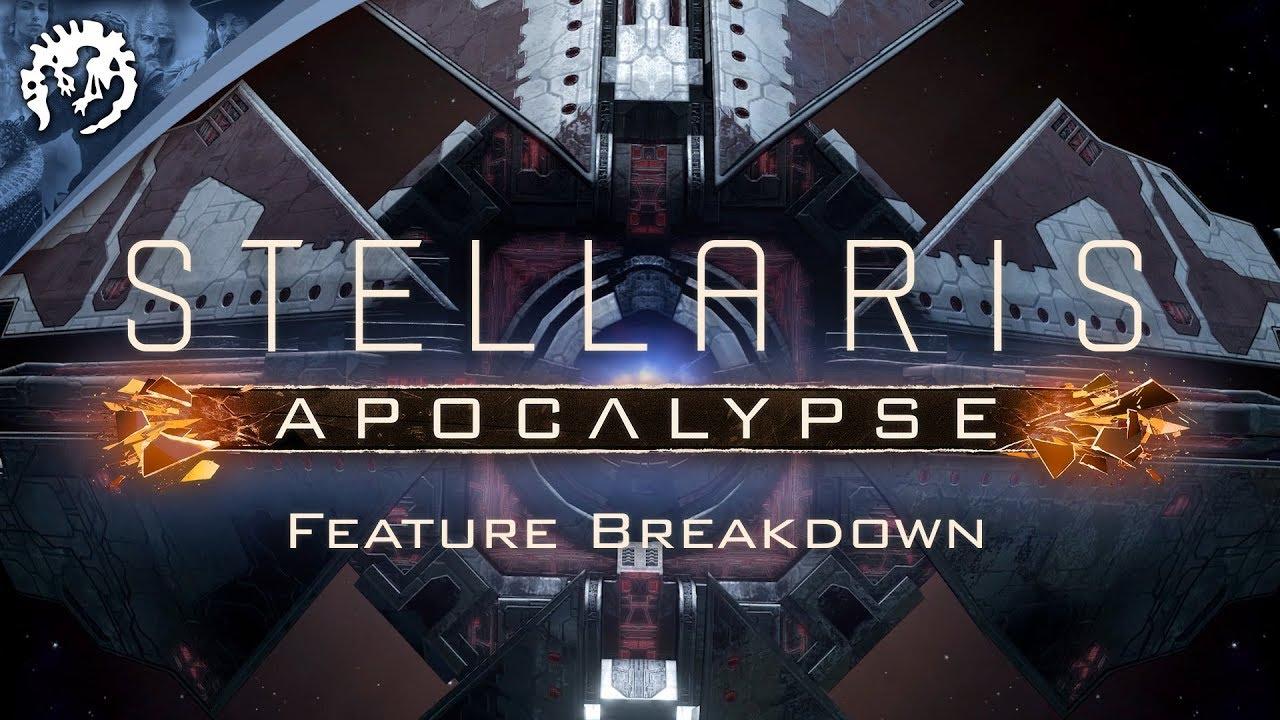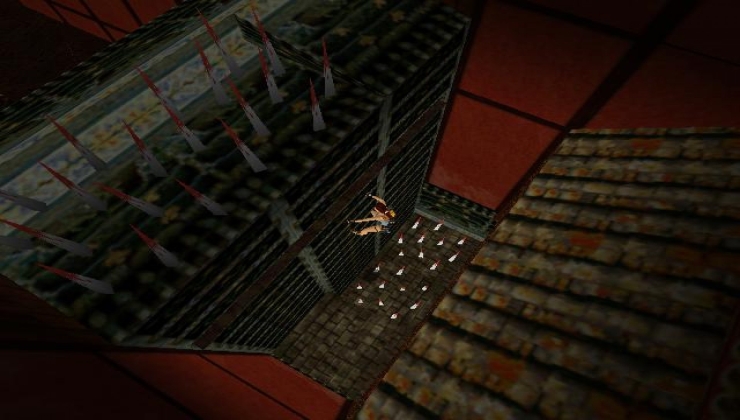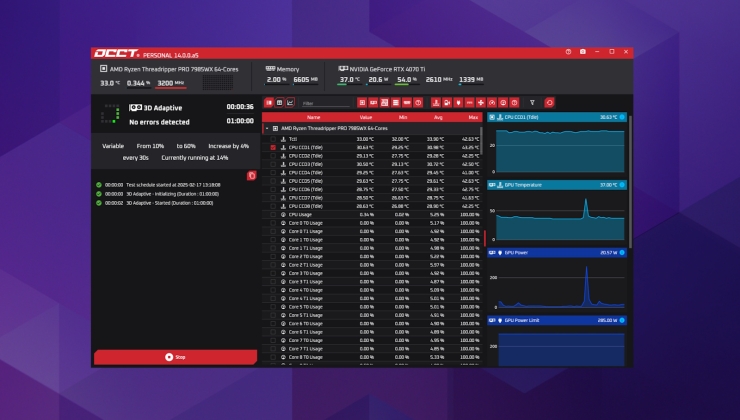Stellaris: Apocalypse [Steam] is set to be a pretty big expansion, with lots of goodies to come for Stellaris fans. It's releasing soon, so Paradox has an overview video up.
As a reminder, it will release on February 22nd. As usual for Paradox games, it will also see a big patch release full of fixes and new features free for existing owners.
Without further ramblings, here's their new overview video:

Direct Link
I honestly can't wait to start blowing up planets, time for my Empire to rule the stars. I've thought for too long the combat in Stellaris was quite lacking, so it's pleasing to see it become the focus for this expansion.
Also, while we're on the subject of Paradox, it seems one person at Paradox Interactive (the publisher, not to be confused with the actual developer, Paradox Development Studio) noticed a decline in Linux sales. Would be a good time to show them it's worth continuing to support us. Here's what they said on Twitter:
[…] Sadly Linux is less than a percent of the sales and keeps dwindling. SteamOS didn't turn out to be what we all hoped. The Linux community needs to grow or spend more to stay viable.
It's a little disconcerting to read, but hopefully they will continue to support Linux gaming for some time. Paradox Interactive do publish a bunch of games that don't support Linux, but perhaps if they see an improvement in future more of their published games (in addition to games directly from Paradox Development Studio, like Stellaris) may see Linux support. A number of their games do cater to a niche, so perhaps their games just aren't as popular as I thought they would be with Linux gamers. I've asked if they can share any specific data about it, so hopefully we can talk about that more in future.
Ps. I realise it can be confusing with the publisher and developer both starting with "Paradox", but they are different. The article text was adjusted after publishing to make it much clearer.
He speaks for all of us.
"SteamOS didn't turn out to be what we all hoped."
He speaks for all of us.
Seriously. Can somebody message that Paradox quote to Gabe?
This is what I find interesting though, you're not forced to buy the DLC, you can likely buy the base game and be content with the many hours it would bring you. Once it feels stale, pick up one the major DLC and so on. Paradox strategy games are generally full of content to keep you busy without expansions.I think their approach is one of the best personally.so Paradox, expect me to buy some DLC real soon!
I don't think their approach to DLC helps them personally... I own Stellaris but I've held fire on buying the DLC as they *just keep coming* and this seems to be a recurring theme...
For these titles I tend to wait for a 'collector's edition'.
They have seriously long-term support for their games, more so than the vast majority of developers. Pushing out DLC (that is not required) enables them to continue getting funds for each team working on each game, plus they always do a free content patch with each DLC.
Totally appreciate the support Paradox has given to the Linux gaming scene.
I've got very limited time to play a game nowadays (I appreciate your job allows the freedom to re-visit titles) I'm fortunate to get a single visit! I don't want to buy thinking there is likely to be 5+, game play changing, additions to the content.
This is what I find interesting though, you're not forced to buy the DLC, you can likely buy the base game and be content with the many hours it would bring you. Once it feels stale, pick up one the major DLC and so on. Paradox strategy games are generally full of content to keep you busy without expansions.
True, you're not, but from the article: "I've thought for too long the combat in Stellaris was quite lacking". I'd just rather play a 'functionally' complete game once (either with/without ~3 content expansions). The model often used here just feels like too much of a guessing game personally.
I do appreciate the flexibility Paradox's approach affords though - for myself (and possibly others in my position) it just doesn't sit quite right :)
Just bought three DLC packs I didn't yet have, too. Just because.I'm picking up the Humanoid Species Pack which I wasn't interested in at all previously just because, too. And pre-ordering Apocalypse. (If they'll let me; I'm getting a message saying “We're currently unable to process any payments from your region.”) :(
1/2 Million active Linux users only on Steam.. .how many active users are enough to consider Linux a viable market???FYI: 0.41% from approx 280M Steam total users is more that 1/2M active Linux accounts ;)
(it is somewhere around 1.1M to 1.2M to be more specific).
St.
This is what I find interesting though, you're not forced to buy the DLC, you can likely buy the base game and be content with the many hours it would bring you. Once it feels stale, pick up one the major DLC and so on. Paradox strategy games are generally full of content to keep you busy without expansions.
True, you're not, but from the article: "I've thought for too long the combat in Stellaris was quite lacking". I'd just rather play a 'functionally' complete game once (either with/without ~3 content expansions). The model often used here just feels like too much of a guessing game personally.
I do appreciate the flexibility Paradox's approach affords though - for myself (and possibly others in my position) it just doesn't sit quite right :)
I think most of the actual gameplay changes/enhancements that accompany a DLC do get rolled into the main game, though. So if I don't buy Apocalypse I won't get the planetbusters or the huge flagships but I will still get the Cherryh rule changes, not so? So if the rule changes improve combat I get my improved combat, and if I buy the game after Apocalypse comes out I will be buying a version of the game with the improved combat.
Well Cities Skylines is made by Colossal Order Ltd. and it's only published by Paradox Interactive (again, not be confused with the Paradox studio). A lot of times, the developer can be the one making the platform decisions, not the publisher.
In the case of Cities, it's a Unity game, so they didn't exactly need to re-work tons of Linux.
I believe it's even more confusing, if I remember the podcast details correctly, as Cities Skylines is developed by Colossal Order, and published by Paradox Interactive, but Paradox actually owns the intellectual property to Cities.
Paradox likes to retain IP where possible and approaches developers directly to work for them if they think they have the right capabilities for an idea. I think it was Cities where this happened. Not sure on Surviving Mars or Battletech.
Paradox games are DRM free, see [here](https://pcgamingwiki.com/wiki/The_Big_List_of_DRM-Free_Games_on_Steam#Paradox_Development_Studio).
Sorry, but I see [Steam](http://store.steampowered.com/app/73010/), [Steam](http://store.steampowered.com/app/203770/) and [Steam](http://store.steampowered.com/app/236850/) in the link and as we all know Steam does not allow game downloads without its DRM client (and needless to say neither of the three games interests me). I have nothing against Paradox personally (even brought Tyranny on GOG, which shows, they can do DRM-free when they want to).
I'll start using Steam the first minute Valve removes its DRM-client (or makes it optional).
You got it completely wrong. Yes, you need the client to download the games, BUT after that you can play the Paradox Games and lots of other games without Steam. You can backup and copy it onto many computer as you like. NO DRM is stopping you!!!
Also no developer or publisher is forced to use the SteamDRM, so it is optional already!
I probably got more picky because I can choose now, so my focus is RPGs, city building and puzzle games.
There were times where I could not choose, where I just bought ... that's not possible any longer, so I buy only if I am really interested.
But I got an itch to play Stellaris in the last days anyway. And the game runs really smoothly even on older hardware. Well done, Paradox. :D
But even if I survey the whole galaxy in Stellaris I probably won't find an answer to the question why there are not more Linux users in the universe.
Last edited by Micromegas on 16 Feb 2018 at 3:12 am UTC
This is what I find interesting though, you're not forced to buy the DLC, you can likely buy the base game and be content with the many hours it would bring you. Once it feels stale, pick up one the major DLC and so on. Paradox strategy games are generally full of content to keep you busy without expansions.
True, you're not, but from the article: "I've thought for too long the combat in Stellaris was quite lacking". I'd just rather play a 'functionally' complete game once (either with/without ~3 content expansions). The model often used here just feels like too much of a guessing game personally.
I do appreciate the flexibility Paradox's approach affords though - for myself (and possibly others in my position) it just doesn't sit quite right :)
I think most of the actual gameplay changes/enhancements that accompany a DLC do get rolled into the main game, though. So if I don't buy Apocalypse I won't get the planetbusters or the huge flagships but I will still get the Cherryh rule changes, not so? So if the rule changes improve combat I get my improved combat, and if I buy the game after Apocalypse comes out I will be buying a version of the game with the improved combat.
Indeed, most of the gameplay changes in Paradox games are given free to all owners of the base game. But I have to say that for Europa Universalis IV I'm right now using deliberately not the most updated base game (you can choose other versions of EU IV to install in the Steam client via the "Betas" tab under "Properties" ) because I want to play the game without some changes after the 1.11.4 version.
Sorry, Paradox, but DRM-free or it didn't happen. I won't give Valve a cent.
<rant>
You do realize that this attitude is part of what might make bigger publishers reconsider supporting Linux, yes? If you're not buying their games for purely ideological reasons (and that's what it is), they might oblige and stop offering them.
Am I a fan of DRM? Certainly not. But mildly intrusive systems like Steam's are still better than having no games at all. And as others have pointed out, Paradox doesn't even -use- Steam's DRM features, so this makes boycotting them extra-dumb in my book.
This Steam bashing coming from some zealots here makes me angry, in all honesty. Without Valve pushing us, we would have a handful of low-budget, garage-made Indie games and Tux Racer to play. In other words, nothing worth mentioning. I guess I wouldn't even BE here, because I'd still use Windows 99% of the time when playing games, instead of the other way around, which Valve had no small part in making possible.
If people like you would finally put their knuckleheaded ideology away and start buying games from Steam they would have bought from GOG without even thinking twice, publishers like Paradox wouldn't think about dropping support for us. In other words, yes, I think you're a part of the problem here.
PS: I hope you don't have any Android/iOS smartphone, any streaming subscription or cable TV either. All of these have built-in DRM, so you folks have to boycott them, too!
</rant>
It is vital that the operating system itself and all applications you need to process important files, data and information are not only free of DRM but actually Open Source. Free of DRM is important where security, reliability and your control over the processed data is important.
But I don't see such a big problem with DRM in games - other than the problem that you can't sell them.
Games are not yet there to be that important. Movies on the other hand (and of course books) can be more important for a free society to be free of DRM.
Sorry, Paradox, but DRM-free or it didn't happen. I won't give Valve a cent.And then all of you ask why Linux is struggling to get a decent percentage enough for keep developers interested. These Linux hipsters are just...
DOnt get confused, Linux users arent hipsters, but some of the linux user base doesnt even want to use Steam because is "too mainstream". This is just plain dumb.
I wish we could point out to Paradox that the reason for the abysmally small market share in Linux is largely due to growth of Windows in Asia (particularly China) is outstripping Linux growth worldwide.Growth in Steam membership /= growth in number of computers, and both of those things are /= to growth in game purchases, particularly since a good deal of that growth in Steam use is oriented towards the playing of a single very popular game. That is, the growth in Asian Steam use does not mainly represent a growth in Windows in Asia but rather an expansion of Steam into an existing market which was always of mainly Windows computers. And the growth in Asian Steam use very likely does not imply many Asian Windows sales of Paradox games since, at least for the moment, most of them are mainly interested in purchasing and playing one single game and it's not from Paradox.
So if we pointed your point out to Paradox we would be mistaken.
I wish we could point out to Paradox that the reason for the abysmally small market share in Linux is largely due to growth of Windows in Asia (particularly China) is outstripping Linux growth worldwide.
Reasons are one thing, but cost vs income balance of supporting an ultra-niche market is another thing. Which one will a publisher/developer look at when considering porting a game (or developing cross-platform)?
For a while availability of games on Linux was driven by the fact that there were so few games available, so Linux gamers were buying almost everything that was available. Now that we actually have a choice, share of Linux gamers purchasing a particular game is closer and closer to the overall Linux market share - which is sub-1%.
I wish we could point out to Paradox that the reason for the abysmally small market share in Linux is largely due to growth of Windows in Asia (particularly China) is outstripping Linux growth worldwide.
Reasons are one thing, but cost vs income balance of supporting an ultra-niche market is another thing. Which one will a publisher/developer look at when considering porting a game (or developing cross-platform)?
For a while availability of games on Linux was driven by the fact that there were so few games available, so Linux gamers were buying almost everything that was available. Now that we actually have a choice, share of Linux gamers purchasing a particular game is closer and closer to the overall Linux market share - which is sub-1%.
Generally in agreement although I'd like to qualify "market share". It certainly seems as if the market share of Linux for desktop use for purposes of browsing the web (or, ahem, watching porn) is greater than 1%, being somewhere in the mid 2% or even 3% range. It is looking like the market share of Linux for gaming in specific may be less than 1%. I've been wondering about the difference; are Linux users mostly not gamers? Are those web browsers measured by surveys mostly workstations? Are many Linux users still booting into Windows to do their gaming? Is Wine use throwing the statistics off? Some combination of factors?














 How to set, change and reset your SteamOS / Steam Deck desktop sudo password
How to set, change and reset your SteamOS / Steam Deck desktop sudo password How to set up Decky Loader on Steam Deck / SteamOS for easy plugins
How to set up Decky Loader on Steam Deck / SteamOS for easy plugins
See more from me